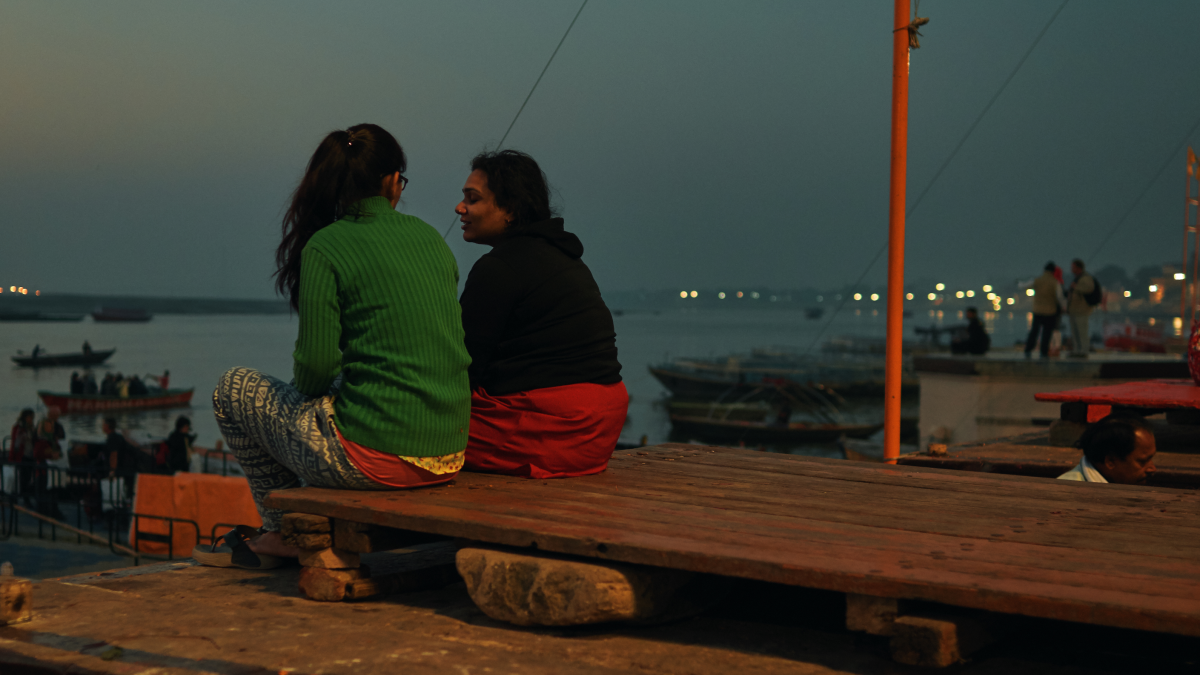
Out For Australia Volunteer V.P. shares their experience in navigating their queer identity in their traditional Indian family.
There are some questions I’ve had since realising my queer identity.
Before I get into one of them, I’ll lay out the basics of my life and who I am and what I stand for. I’m 19, North Indian, born Hindu and turned Agnostic. I was born and raised in a state called Haryana and moved to Australia when I was 7 and a half.
I realised I wasn’t straight when I was 14 and that I was non-binary sometime around 15. I came out to parents around 2018, much to their dismay. It was around the time of the plebiscite – I was keyed up from homophobic rhetoric in my Catholic school and a lot of it was unleashed in “discussions” that helped neither me nor my parents.
[jwplayer 6XogZSI8]
I describe my political identity as somewhere far-left — it’s largely a product of my identity as a queer and Indian person living in Australia. I’ve been shaped a lot by secular social justice activism during my Catholic high school days and by Tumblr in 2014, oddly enough.
I guess you could say I was raised in a pretty progressive household – me being a “girl” didn’t really stop my family from throwing every opportunity possible at me to ensure that I succeeded. I grew up in a household of strong matriarchs – there is no one in this world that my papa praises more highly than my grandmother (dadi) and his older sister (bua). They’re both teachers and a source of massive inspiration to me — I want to be a teacher too.
But here’s the thing, as I grew up, I began to realise that every freedom I had was suddenly conditional on how it affects the family name, my dada’s name, my nana’s name. I had to rapidly start following rules to fit into the mould of the sanskari-but-badass-first-kid-in-the-house. Sanskari means of virtuous upbringing/behaviour. This mould had been cast from me since I was born – and I’ve been expected to fill it regardless of the fact that I now live in Australia. I live in a state of disbelief: I’ve been told to go full-steam-ahead for so much of my life, but was forced to a grinding halt once I hit my mid-teens, once I became a “woman”. Every action on social media became a hot topic of discussion between the Old People in the house and me – I couldn’t outright support queer media/folx.
Now, being queer and non-binary isn’t really something that matches my family’s idea of what the first kid in the house should be like – and it’s left me at odds with myself in deciding: do I live for myself or do I live to please the family that has given me the opportunities and lessons to become who I am today?
The one question that’s been ricocheting around my head since I started dating my first partner — they are non-binary but female passing. The question is: would my family come to my wedding if I told them I was queer?
In my head, it’s glamorous, this wedding of mine. The family I’ve been with since I was born, the family I found as I grew up and continue to find. Everyone who’s had a hand in raising me is invited, and then some: all of dad’s friends and their families, all of my grandpa’s friends and their families. There are at least a thousand people there and it’s as big as it can get – I’m the first kid in the house.
I wonder if the wedding will be here or in India or will I be one of those lucky bastards that has two weddings? I wonder if the one here will be in Western style and if the one in India will be traditional with the whole 5 days of sangeets, mehandi nights, dinners and preparations. I wonder if I’ll get to show the friends I’ve made here the traditional customs of where I’m from.
In my mind, I wear red; a lengha maybe. It looks like it’s the perfect complement to my skin – it is the only colour in which I can say that I don’t hate the colour of my skin and absolutely mean it. I am wearing mehandi on both my hands, up past my elbows and I look regal. There is minimal make-up; it’s never been my thing.
And the person across me, I don’t know who they’ll be. I spiral into a series of thoughts, each one worse than the one that come before it.
What if it’s a white guy? What if it’s a Muslim guy? Oh no, Beta, what will people say?
What if it’s a girl? Your grandfather’s reputation will be tarnished.
What if it’s a trans person? Aye hai, yeh kya kiya? What have you done?
Now there’s only one scenario in which I can see my family coming to my wedding – the white guy. I think it would work after the initial gora jokes pass. He’s no Punjabi launda but he’ll suffice. And maybe the Muslim guy – if the prejudice passes.
I made the mistake one day of voicing these thoughts to my mum. In a moment of regrettable vulnerability, I asked her if our family would come to my wedding. I was 17 — barely. I wrote about it for a year 12 piece. I’ll read two sections of it. They go as follows:
Section 1:
‘You’re too young to know, Amu…’ she trailed.
‘How long am I too young? Until you force me to marry a boy I don’t want to marry?’ I snapped back.
Section 2:
“I’m gay,” I stated, heartbroken, in tears.
‘You’re only young,’ she repeated.
‘Did you ever wonder if your parents would come to your wedding? Did you ever wonder if your family would come?’ I shot at her, words dripping with pain.
‘You’re 17! You won’t get married for years! You’re being stupid,’ she cried.
And there was that query of mine answered, put to rest in a corner of my brain, coming up again in situations like this where I decide that reciting my traumas to the internet and my HSC English markers is the best way to be.
Some of those lines are lifted, verbatim, from my mum as she said them. A lot of this happened after she walked in on me sleeping with my partner at the time – we were, quite literally, asleep. It was April, it was cold, we were under the same blanket.
She didn’t talk to me for three weeks. I wish I knew what was going through her head and I wish I knew now what’s going through her mind – she’s slowly accepted that I am queer and working for a queer organisation and constantly speaking up about queer rights. But still, I wonder, has she accepted me? She knows that I go to queer events, she knows that I work with a queer organisation, but has she accepted that beyond saying “It’s okay, you can go”?
I was raised on the idea that no matter what happens, family will be by my side. But this asterisk that I can see on their love, the conditions that I need to meet to be given their protection strikes absolute terror into me because I cannot fathom losing them.
And maybe that’s worth suppressing my identity around them.
Entering any workforce is challenging. Trying to understand what’s expected of you, where you fit in, what’s appropriate and who your people are. Being queer only makes this more difficult… How will you act? Can you be your most authentic self? And if not now, when? Out For Australia runs a number of initiatives, aimed at making this journey as seamless as possible. They provide events, mentoring and role models to educate and inspire everyone to be their most authentic self.



